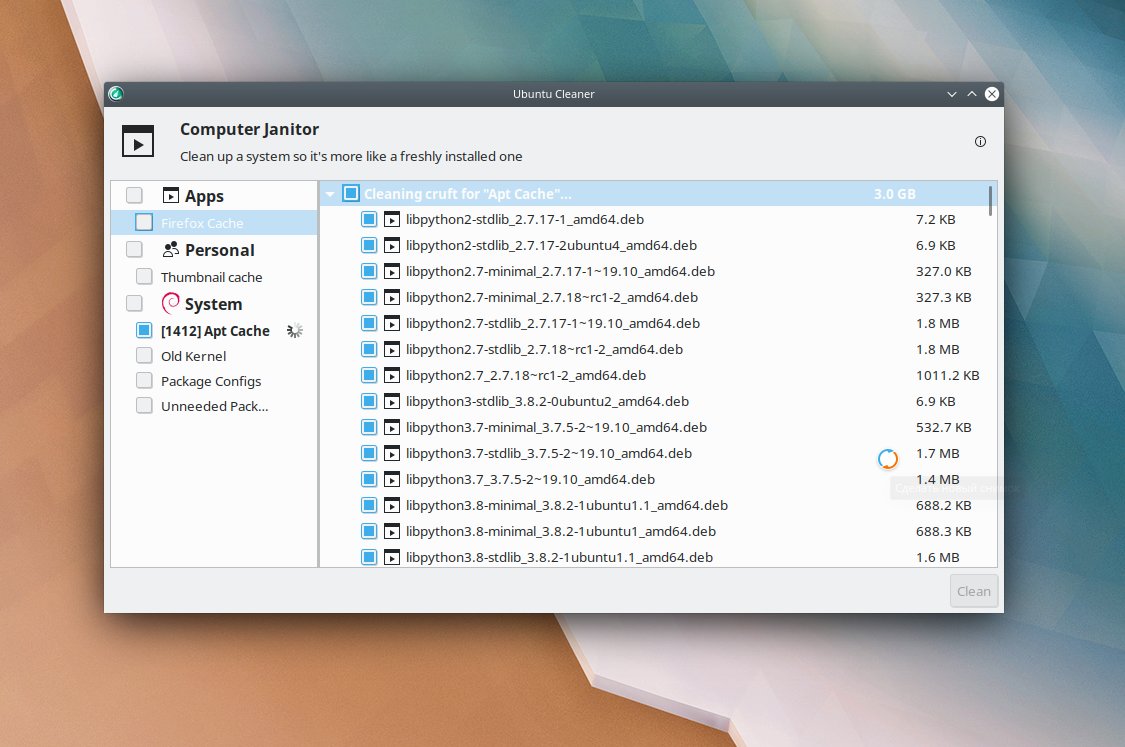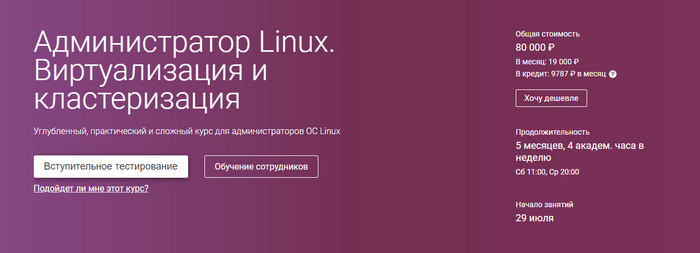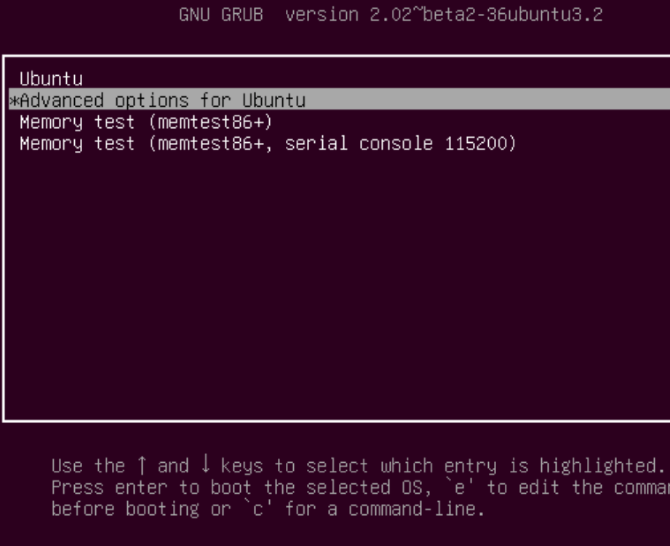- Its very hot and all the windows
- Users who have contributed to this file
- Рабочая тетрадь Spotlight 8. Workbook. Страница 46
- I. Complete these sentences. Use the verbs below in the past form. clean — die — enjoy — end — happen — live — open — play — rain — repair — start — stay — want — watch
- ГДЗ Английский язык 6 класс (часть 2) Афанасьева. UNIT 5. Step 1. Номер №9
- Решение
- Рабочая тетрадь Spotlight 6. Workbook. Страница 51
Its very hot and all the windows
1 contributor
Users who have contributed to this file
11.1 Complete the sentences. Use a verb from the box.
- I cleaned my teeth three times yesterday.
- It was hot in the room, so I opened the window.
- The film was very long. It started at 7.15 and finished at 10 o’clock.
- When I was a child, I want to be a doctor.
- The accident happened last Sunday afternoon.
- It’s a nice day today, but yesterday it rained all day.
- We enjoyed our holiday last year. We stayed at very nice place.
- Anna’s grandfather died when he was 90 years old.
11.2 Write the past simple of these verbs
- get — got
- see — saw
- play — played
- pay — payed
- visit — visited
- buy — bought
- go — went
- think — thought
- copy — copied
- know — knew
- put — put
- speak — spoke
11.3 Read about Lisa’s journey to Madrid. Put the verbs in the correct form.
Last Tuesday Lisa flew from London to Madrid. She got up at 6 o’clock in the morning and had a cup of coffee. At 6.30 she left home and drove to the airport. When she got there, she parked the car, walked to the airport building, and checked in. Then she had breakfast at a cafe and waited for her flight. The plane departed on time arrived in Madrid two hours later. Finally she took a taxi from the airport to her hotel in the centre of Madrid.
11.4 Write sentences about the past (yesterday / last week etc.)
- James always goes to work by car. Yesterday he went to work by car.
- Rachel often loses her keys. She lost her keys last week.
- Kate meets her friends every evening. She met her friends yesterday evening.
- I usually buy two newspapers every day. Yesterday I bought two newspapers.
- We often go to the cinema at weekends. Last Sunday we went to the cinema.
- I eat an orange every day. Yesterday I ate an orange.
- Tom always has a shower in the morning. This morning he had a shower.
- Our friends often come to see us. They came to see us last Friday.
11.5 Write sentences about what you did yesterday.
- I went to the cinema.
- I had a shower.
- I saw my friend.
- I played badminton.
- I walked around a park.
- I fell asleep.
Рабочая тетрадь Spotlight 8. Workbook. Страница 46
1. Choose the correct item. — Выберите корректный вариант.
- It’s a shame she couldn’t come to the party. I was looking forward to seeing/ see her. — Досадно, что она не смогла прийти на вечеринку. Я так ждала увидеть ее.
- He may come/ coming if you invite him. — Он может прийти, если ты пригласишь его.
- I can hear the children talk /talking. They must still be awake. — Я слышу как дети разговаривают. Они наверное еще не спят.
- The teacher made him writing /write his essay again. — Учитель заставил его писать эссе еще раз.
- Robert is very anxious about passing/ pass the exam. — Роберт очень волнуется о сдаче экзамена.
- Will your father let you going /go to the party on Saturday? — Твой папа позволит тебе пойти на вечеринку в субботу?
- He denied breaking/ to break the window. — Он отрицал, что разбил окно.
- Students aren’t allowed speaking /to speak to each other during a test. — Студентам не разрешается говорить друг с другом во время теста.
- The manager avoided discuss /discussing such matters in front of his secretary. — Менеджер избегал обсуждать такие дела в присутствии своего секретаря.
- My brother agreed helping /to help me clean the garage. — Мой брат согласился помочь мне убраться в гараже.
2. Put the verbs in brackets into the correct infinitive or -ing form. — Поставьте глаголы в скобках в корректную форму инфинитива или герундия.
- A: Let me help you carry the bags. — Позвольте мне помочь вам понести чемоданы.
B: That’s very kind of you. Thanks. — Очень мило с вашей стороны. Спасибо. - A: What is Peter going to do after he finishes university? — Что Питер собирается делать после окончания университета?
B. He wants to attend a postgraduate course in Management. — Он хочет пойти на курс менеджмента. - A: Alan suggested going climbing on Sunday. Do you want to come? — Алан предложил пойти полазить (по горам или в специальном зале) в воскресенье. Хочешь пойти?
B: I’d love to. — С удовольствием. - A: Did you find the test questions difficult? — Вопросы теста по-твоему были сложными?
B: No, they were easy to answer. — Нет, на них было легко ответить. - A: Are you thinking of visiting London this summer? — Вы подумываете посетить Лондон этим летом?
B: No, I’m travelling to Paris instead. — Нет, вместо этого я поеду в Париж. - A: You’d better not ride your bicycle without a helmet. — Ты бы лучше не ездил на велосипеде без шлема.
B: Of course I won’t! — Конечно, я не буду! - A: Did he admit taking the money? — Он сознался, что взял деньги?
B: Of course not! — Конечно, нет!
3. Tick the correct sentences. Make the necessary changes to the incorrect ones. — Отметьте галочкой правильные предложения. Внесите необходимые изменения в неверные предложения.
- Do you remember to meetmeeting her at the party? — X — Ты помнишь, как встретил ее на вечеринке?
- Please remember to lock the door before you leave the office. — √ — Пожалуйста не забудь запереть дверь перед тем как уйти из офиса.
- I forgot turningto turn off the lights when I left my house today. — X — Я забыл выключить свет, когда уходил из дома сегодня.
- I shall never forget seeing the Royal family in London. — √ — Я никогда не забуду тот момент, когда увидел королевскую семью в Лондоне.
- Staying fit means exercising regularly. — √ — Оставаться в форме — значит регулярно заниматься.
- I’m sorry. I didn’t mean to interrupt your conversation. — √ — Мне жаль. Я не хотел прерывать ваш разговор.
- The children were trying very hard solvingto solve the difficult maths problems. — X — Дети очень старались решить сложные математические проблемы.
- Try listening to classical music. It will relax you. — √ — Попробуй послушать классическую музыку. Она расслабит тебя.
- Richard stopped to studystudying and turned on the TV. — X — Ричард прекратил учить и включил телевизор.
- While I was on my way home I stopped buyingto buy some bread. — X — По дороге домой я остановился купить хлеба.
4. Choose the correct answer. — Выберите корректный ответ.
- Does Peter like England? — Yes, he does, but he can’t get used to the rainy weather. — Питеру нравится Англия? — Да, нравится, но он не может привыкнуть к дождливой погоде.
a) didn’t use to
b) can’t get used to
с) wasn’t used to - How’s life in the city? — Well, I am still not used to it yet, but it’s OK. — Как жизнь в городе? — Я еще не совсем привык к ней, но все нормально.
a) am used to
b) am still not used to
с) didn’t get used to - Does John play tennis? — Well, he used to play tennis when he was a student, but he doesn’t anymore. — Джон играет в теннис? — Он играл раньше в теннис, когда был студентом, но больше не играет.
a) was used to
b) been used to
с) used to - Was it difficult for Vicky to speak German when she first moved abroad? — It was quite difficult in the beginning but now she has been used to it. — Для Вики было сложно говорить на немецком поначалу, когда она переехала за границу? — Это было довольно сложно в начале, но сейчас она уже привыкла (мы считаем, что привычка уже сформировалась, а не продолжает формироваться).
a) got used to
b) been used to
с) used to - Have you ever lived by the sea before? — No, but I will get used to it. — Вы когда-нибудь жили у моря раньше? — Нет, но я привыкну.
a) be used to
b) used to
с) get used to - Diane has lots of dolls. — Yes, she used to collect them when she was a child. — У Дианы много кукол. — Да, она коллекционировала их, когда была ребенком.
a) used to
b) was to used to
с) got used to
I. Complete these sentences. Use the verbs below in the past form. clean — die — enjoy — end — happen — live — open — play — rain — repair — start — stay — want —
watch
1. Yesterday evening I ________________TV.
2. I only________________ my teeth four times last week.
3. Bruce________________ his mountain bike yesterday evening.
4. The concert last night ________________ at 7.30 and ________________ at 10 o’clock.
5. The accident ________________ last Sunday afternoon.
6. When I was a child, I ________________ to be a lawyer.
7. Mozart ________________ from 1756 to 1791.
8. We v our holiday last week.
9. Today the weather is nice, but yesterday it ________________.
10. It was hot in the room, so I ________________ the window.
11. The weather was good yesterday afternoon, so we ________________ tennis.
12. William Shakespeare ________________ in 1616.
II. Fill in the negation.
1. They went to work by train. They ____________________________ to work by train.
2. We gave her an expensive necklace. We ____________________________ her an expensive necklace.
3. They did their homework carefully. They ____________________________ their homework carefully.
4. He drove very fast. He ____________________________ very fast.
5. Daniel opened a new restaurant. Daniel ____________________________ a new restaurant.
6. We worked last Monday. We ____________________________ last Monday.
7. We saw Bill yesterday evening. We ____________________________ Bill yesterday evening.
8. The boys liked their sports teacher. The boys ____________________________ their sports teacher.
9. I ordered ham and eggs. I ____________________________ ham and eggs.
10. Nicole found her ring. Nicole V her ring.
11. The twins were at the party. The twins V at the party.
12. They watched TV. They ____________________________ TV.
13. Nancy went to school. Nancy ____________________________ to school.
14. He was in town. He ____________________________ in town.
15. They lived in Glasgow. They ____________________________ in Glasgow.
III. Form the questions.
Example: She opened the window. — Did she open the window?
1. He took a shower. _________________________ a shower?
2. She did the homework. _________________________ the homework?
3. They visited their grandparents. _________________________ their grandparents?
4. The girls jumped into the lake. _________________________ into the lake?
5. He looked after his younger sister. _________________________ his younger sister?
6. Sam bought new jeans. _________________________ new jeans?
7. Susan finished the housework. _________________________ the housework?
8. We listened to our favorite CD. _________________________ to your favorite CD?
9. They played tennis last Saturday. _________________________ tennis last Saturday?
10. She made breakfast yesterday. _________________________ breakfast yesterday?
11. They were at school. _________________________ at school?
12. She passed the exam. _________________________ the exam?
13. He was happy. _________________________ happy?
14. The boys worked hard. _________________________ hard?
15. She got up early. _________________________
ГДЗ Английский язык 6 класс (часть 2) Афанасьева. UNIT 5. Step 1. Номер №9
Complete the sentences. Use the words from the box where necessary.
at, in, on, to, above, below
1 ) It is very hot today. It is twenty−five degrees . zero.
2 ) I like it when snow−flakes fall . the ground.
3 ) It’s difficult to ski . the temperature of 1 − 2 degrees above zero.
4 ) Why are you sitting . the ground?
5 ) Is the temperature of twenty degrees . zero usual for Moscow . winter now?
Решение
Перевод задания
в, в, на, к, выше, ниже
1 ) Сегодня очень жарко. Сейчас двадцать пять градусов . нуля.
2 ) Мне нравится, когда снежинки падают . землю.
3 ) Сложно кататься на лыжах . температуре 1 − 2 градуса выше нуля.
4 ) Почему ты сидишь . земле?
5 ) Обычна ли для Москвы температура двадцать градусов . нуля сейчас . зимой?
ОТВЕТ
1 ) It is very hot today. It is twenty−five degrees above zero.
2 ) I like it when snow−flakes fall to the ground.
3 ) It’s difficult to ski at the temperature of 1 − 2 degrees above zero.
4 ) Why are you sitting on the ground?
5 ) Is the temperature of twenty degrees below zero usual for Moscow in winter now?
Перевод ответа
1 ) Сегодня очень жарко. Сейчас двадцать пять градусов выше нуля.
2 ) Мне нравится, когда снежинки падают на землю.
3 ) Сложно кататься на лыжах при температуре 1 − 2 градуса выше нуля.
4 ) Почему ты сидишь на земле?
5 ) Обычна ли для Москвы температура двадцать градусов ниже нуля сейчас зимой?
Рабочая тетрадь Spotlight 6. Workbook. Страница 51
1. Complete the rules. Use must/mustn’t. — Дополните правила. Используйте must или mustn’t.
- You must keep the room clean. (√)
- You must play music after 10:00 am. (√)
- You mustn’t put posters on the walls. (X)
- You mustn’t keep pets In the room. (X)
- You must make the bed. (√)
2. Underline the correct word. — Подчеркните правильное слово.
- You must / needn’t stop at the red light. — Ты должен остановиться на красном сигнале светофора
- Pilots have to / can’t wear a uniform. — Пилоты должны носить униформу
- You mustn’t / don’t have to water the plants. I’ll do that. — Тебе не нужно поливать растения. Я сделаю это.
- He’s ill. He must / has to see a doctor. — Он болен. Он должен обратиться к доктору.
- You mustn’t / don’t have to eat in the classroom. It isn’t allowed. — Ты не должен есть в классе. Это не разрешается.
- He has to / can’t do his homework every day. — Ему приходится делать домашнюю работу каждый день.
- Do I have to / Needn’t I finish it today? — Я должен это закончить сегодня?
- You mustn’t / needn’t wear a sweater. It’s warm outside. — Вам не нужно одевать свитер. Снаружи тепло.
- You mustn’t / don’t have to be late. It’s an important meeting. — Вы не должны опаздывать. Это важная встреча.
- He can go out but he need / has to be back by 10:00. — Он может выйти, но он должен вернуться к 10:00
3. Look at the library rules and make sentences with must or mustn’t. — Посмотрите на библиотечные правила и составьте предложения с must или mustn’t
- You mustn’t make any noise — Вы не должны шуметь
- You must be quiet. — Вы должны сохранять тишину
- You mustn’t eat or drink. — Вы не должны есть или пить
- You must be careful with the books. — Вы должны быть осторожны с книгами
- You mustn’t leave books on the table when you leave. — Вы не должны оставлять книги на столе, когда уходите
- You must put the books back in the right place. — Вы должны положить книги на их место.
4. Choose the correct word. — Выберите правильное слово
- Can I go outside, please? — Могу я выйти?
A) Can— могу
В) Need
С) Must - You mustn’t drive on campus. It’s forbidden. — Вы не должны въезжать на территорию кампуса. Это запрещено
A) needn’t
В) mustn’t— не должны
С) have to - The rules say we must keep our rooms tidy. — Правила говорят, что мы должны сохранять порядок в комнате
A) must— должны
В) can
С) can’t - I’m afraid you can’t go out now. It’s too late. — Я боюсь, вы не можете уйти сейчас. Уже слишком поздно
A) can
В) can’t — не можете
С) needn’t - You mustn’t put posters on the wall. It’s forbidden. — Вы не должны вешать постеры на стены. Это запрещено
A) needn’t
В) mustn’t — не должны
С) have to
5. Write the short forms. — Запишите краткие формы
- She must not — She mustn’t — Она не должна
- They can not — They can’t — Они не могут
- You need not — You needn’t — Тебе не нужно
- I do not have to — I don’t have to — Мне не нужно
- He does not need to — He needn’t — Ему не нужно
6. Read the situations and write appropriate sentences. — Прочитайте о событиях и запишите соответствующие предложения
- There’s no need for your friend to wash the dishes because your sister is doing it. What do you say? — Нет необходимости для ваших друзей мыть посуду, потому что ваша сестра делает это. Что вы скажете?
You needn’t wash the dishes. My sister will do it. — Вам не нужно мыть посуду. Моя сестра сделает это. - A classmate of yours is eating in the library but it is not allowed. What do you say? — Ваш одноклассник ест в библиотеке, но это не разрешается. Что вы скажете?
You mustn’t eat in the library. It’s not allowed. — Ты не должен есть в библиотеке. Это не разрешается - Your little brother wants to borrow your CD player. Refuse permission. — Ваш младший брат хочет одолжить ваш CD плейер. Откажите
I’m afraid you can’t borrow my CD player. — Я боюсь, ты не можешь одолжить мой CD плейер - Your friend talks during the lesson. Tell him to be quiet. It’s the rule. — Ваш друг разговаривает во время урока. Скажите ему, чтобы он не разговаривал. Это правило.
You must be quiet during the lesson! It’s the rule. — Вы должны сохранять тишину во время урока! Это правило - You are renting a flat to a student. Tell him that it’s necessary to pay the rent on time. — Вы сдаете в аренду квартиру студенту. Скажите ему, что необходимо платить арендную плату вовремя
You must pay the rent on time. — Вы должны платить арендную плату вовремя













